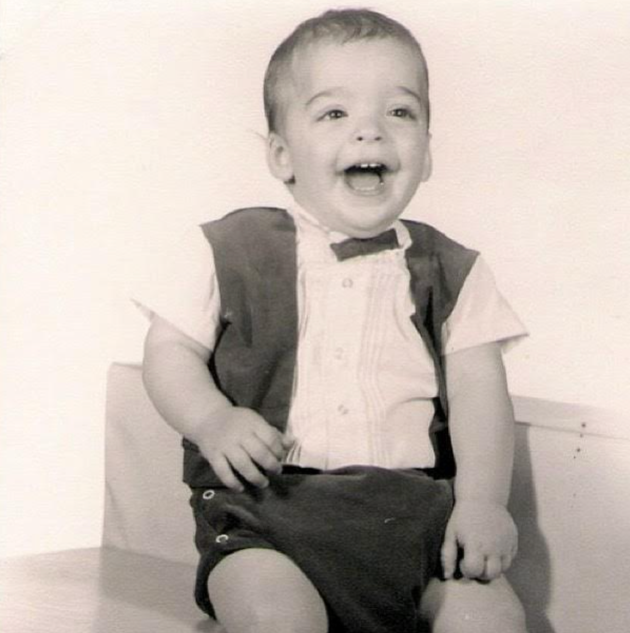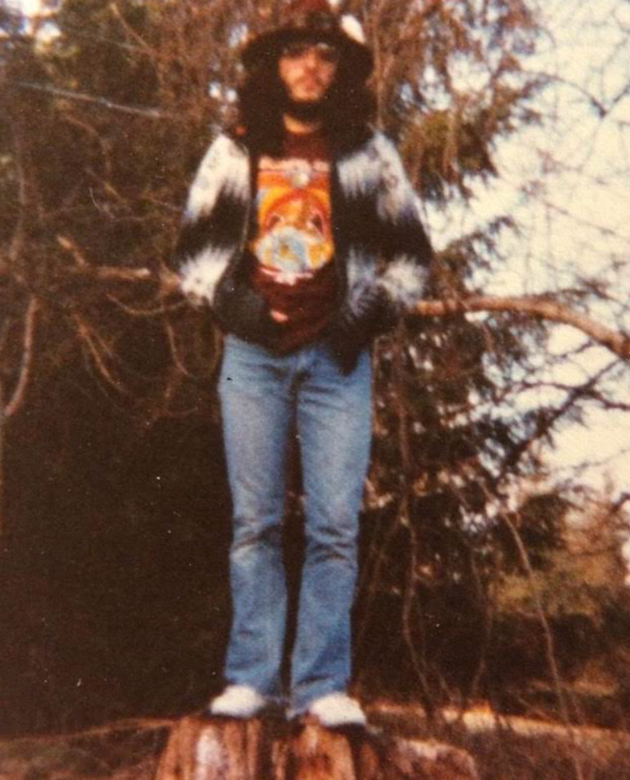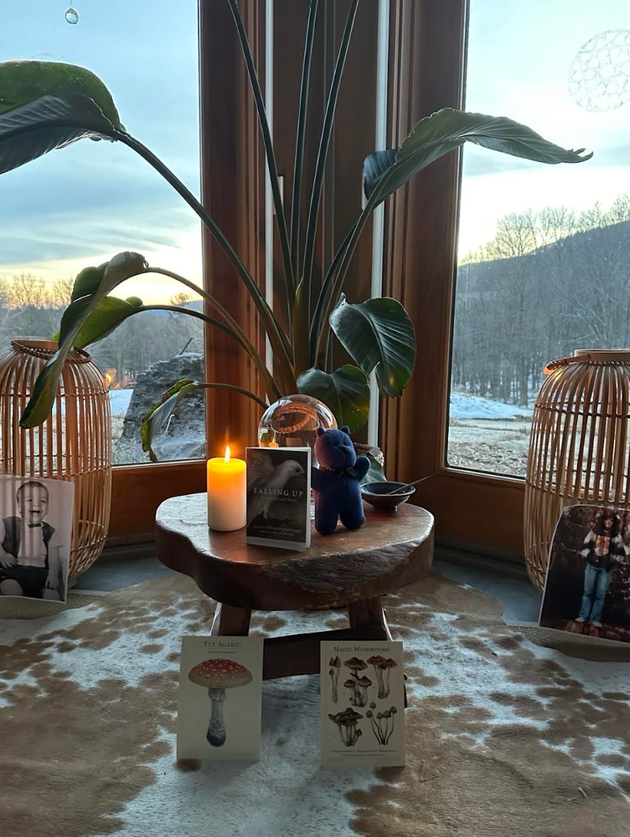“I might head off to the Azores if that’s what you prefer,” I told my wife, Samantha, following a disagreement with a relative who held me responsible for their own actions. This statement wasn’t so much a genuine proposal as it was a warning, one I’ve issued previously when tensions ran high. The thought of those Portuguese islands, home to my forebears, has often served as my sanctuary during challenging times.
My standard approach has always been to run away whenever confronting the issue failed to yield the expected outcome. Throughout my entire life, even after ten years of being married to the person I adore most, I found it impossible to break this habit when I sensed entrapment.
Once, during a heated disagreement early in our marriage, I stormed out of the house, circled the block quickly, slipped back inside unnoticed, and concealed myself in a distant bedroom.
Superficially, my existence appeared as enviable as they come: a thriving profession, authored works, and six remarkable children shared between us (three biologically mine, three hers). Yet within me, an unrelenting inner voice persisted, whispering,
You’re never sufficient. Everything you care about crumbles because of you. Flee before you get damaged.
This voice had become more pronounced due to the recent family crisis, casting doubt upon my role within the family and quickly escalating into much more profound issues. What could have appeared as just another minor familial disagreement struck at the heart of me, questioning my validity and stirring up all my old fears from childhood—of being unaccepted, feeling like an outsider, and believing there was something inherently flawed about myself.
The message was unmistakable: Regardless of my actions, I would forever remain an outsider.
It was a well-recognized voice from my early years, coming from someone whose life began as mine did, with a 20-year-old dad halted midstride in groundbreaking work in computer engineering because of me. Raising me felt like an interruption he couldn’t handle due to his unaddressed pain. On the heels of turning sixteen, my father almost took my life during a fit fueled by alcohol; for many years afterward, I downplayed this event, convincing myself,
Oh, I handled that ages ago.

The issue at hand was this: I hadn’t faced these problems before — none of them. Now, the dispute with my wife’s family was bringing back all those past issues, jeopardizing the serene life Samantha and I had created together. Internally, I understood that the tension within the family stemmed from intricate relationships fueled by misleading stories and presumptions. To be honest, I had frequently used a comparable approach in my own life: attributing blame to others allows one to avoid accountability altogether.
As my 60th birthday approached, I had been experiencing significant worry and unease throughout the preceding months. It seemed as though barriers were tightening around me, with a sense of dread looming overhead. The accumulation of both past and recent hurts intensified my anxious state.
That was when Samantha came up with an unforeseen proposal.
How about celebrating your 60th birthday with a supervised magical mushroom experience?” she suggested. “I believe it might benefit you.
We’d recently gone hiking with an elderly man who had completed this trail before; he shared stories of encountering every dog he had ever owned along the way. (“Count me in,” I remarked). As it happened, his daughter was a skilled facilitator specializing in psychedelics and had led numerous therapeutic trips over the past few years. We contacted her to learn more about the process.
Although I had dabbled in hallucinogens during my teenage years, I refrained from using any substances (except for coffee and alcohol) after my eldest child was born about three decades ago. However, this time would be distinct—a meticulously facilitated therapy session led by experts.
After doing some research on the topic, I discovered more about
contemporary psychological studies
Proposing that deep-seated traumas might be biologically reconfigured, along with evidence suggesting that psilocybin—the active ingredient in certain fungi—could transiently dismantle the brain’s default mode network, which governs repetitive thoughts and personal narratives. This offered me hope for significant change.
We encountered our guide, whom I’ll refer to as S, during a casual meeting over coffee. This was a thoughtful young lady who exuded spirituality and approached her description of her job with kindness and care. She shared her personal journey and recounted how what she termed “plant medicines” transformed her existence, alleviating severe anxiety that had plagued her throughout her life along with a persistent feeling of void.

Following our first encounter, S and I decided to have a therapy session through Zoom, joined by her associate, M, who specializes in family systems therapy. They were both going to lead me through this process. This was accompanied by an extensive questionnaire covering comprehensive medical and mental health background information. Subsequently, I participated in yet anotherZoom therapy session. Finally, we scheduled the actual start of the therapeutic journey.
During those therapy sessions, we explored the challenges I was encountering, and M guided me through a somatic activity to pinpoint where the trauma manifested physically within my body. For some time, I had been dealing with discomfort at the bottom of my neck and between my shoulder blades. As expected, after M instructed me to shut my eyes and attempt to find the source of the trauma, this area was where I experienced the strongest sensations.
S also encouraged me to consider setting an intention for the journey. What was I aiming to achieve or concentrate on? What did I hope to mend?
Following deep consideration, I chose to return to address my childhood trauma—ranging from the sense of being overlooked during my early years to enduring verbal and frequent physical mistreatment inflicted by my alcohol-dependent father. Additionally, I aimed to alleviate the lingering distress stemming from that harsh confrontation with him when I was 16.
For the trip, I carried photographs of myself at 18 months old and during my teenage years, arranging them on a make-shift shrine. This was meant to enhance the atmosphere and summon those past versions of myself for healing purposes.
My intention was to address the aspects of myself that were hurt by others—whether through neglect, betrayal, or abuse—and work towards reconciling with them. The plan involved lifting them up, bringing them into my heart, and forgiving them for carrying these wounds over the years. This was quite an ambitious endeavor.
Although I felt secure and at ease with the guides who stayed with me throughout the whole experience, I had reservations: Could our expectations—or perhaps Samantha’s—be unrealistic? What if I faltered? What if the mushrooms proved ineffective, leaving me adrift without change or transformation, reverting right back to my former self?
On the day of our expedition, I arrived at an isolated sanctuary tucked away in the tranquil mountain ranges of the Northeast, distant from the chaos of everyday existence. The air was invigoratingly fresh, and the snowy expanse dotted with softly undulating slopes provided a peaceful ambiance nearly suspended in time. This location appeared crafted for contemplating within amidst nature’s tranquility—a secret refuge seemingly tailored for profound self-reflection. By my side were two companions guiding me through this adventure. It felt as though such a setting had been made precisely for experiences like ours.
We conducted a ceremony that involved burning sage and drawing a tarot card. Afterward, we examined my objectives, and S got ready with the initial dosage of the remedy by crushing the dried fungi and blending the resulting dust into warm chocolate milk, making it tastier and simpler to consume. I finished everything in the mug without leaving anything behind. Following this, I settled onto the floor and shared some thoughts regarding the importance of the occasion for me and expressed my current feelings.
Approximately 20 minutes after consuming the mushroom-cocoa blend, I began to experience the effects of psilocybin. It brought about a delightful sensation akin to mild intoxication without affecting my cognitive abilities. My eyesight sharpened significantly; I could discern every minute detail in the woodwork and frame of the windows around me.
I opted to recline on the mattress positioned at the room’s midpoint. The weather outside was delightful with sunlight streaming in, and through the expansive picture window facing a meadow and a snowy peak, I spotted several birds soaring overhead.
After getting comfortable, A asked if I wanted to wear an eye mask, which would help with focusing internally during the trip. They also provided headphones and played a curated playlist of music intended for experiences such as ours.
My original aim was straightforward: to mend the part of me that thought I was inherently flawed. However, the mushrooms had different ideas.
I found myself transported to a vision of 16th-century Portugal, where I saw my 12th great-grandmother bound to a stake in Lisbon, handed over to the Inquisition by her own 19-year-old son. This felt like the clearest dream I had ever had, with everything unfolding right before my eyes. As though present at the scene, I moved towards this woman and wrapped my arms around her, providing the forgiveness she didn’t get during her lifetime.
All of a sudden, she ascended into the heavens and vanished. Then, I glanced downward to discover I was in her position as the fire started to ascend.
Rather than resisting the blaze, I yielded to it. As the inferno engulfed me, it felt like it was burning off layers of built-up suffering—not only mine, but those passed down through generations. His adolescent boy also showed up, weeping beside my feet, and I discovered myself pardoning him too. A significant transformation was taking place, beyond mere individual restoration but something akin to “quantum healing” over time, as S would later describe it.

Initially, I felt somewhat let down: Isn’t this story meant to revolve around me? Why should I comfort these strangers and liberate them? I had come across parts of this family narrative four years ago during my investigation into the transcripts of her trial. Additionally, I visited the spot in Lisbon where she met her tragic end. However, I hadn’t dwelled on her or her suffering for quite some time—certainly not as I embarked on this quest; it wasn’t something close to my thoughts then.
Even though this was the most significant part of the experience, several other aspects of the journey stood out as well. Throughout different stages of the session, at intervals between consuming portions of the mushroom concoction, my guides would check up on me, enquiring about my experiences. While doing so, S jotted down notes, recording my responses to their questions. At some stage, I mentioned that my body seemed to vanish; later, I had the sensation of hovering within the space around me.
My hearing became so acute that I could pick up every subtle aspect of each musical note from the headphones, even distinguishing finer details like the sound of fingertips pressing piano keys or the gritty, waxy resonance of a bow moving across a violin string. There was a moment when I seemed to predict the melody as though composing it prior to its performance. (It turned out this was just due to a synchronization problem between the audio in my headphones and the sounds coming from the room’s computer speakers!)
Afterward, I caught a bit of Portuguese in one of the tracks playing on the list. The audio clip featured an airport announcement with a flight attendant telling passengers to put on their personal oxygen masks first before assisting others nearby. This made me chuckle loudly. A guide then enquired about my amusement, and I explained, “This Portuguese keeps popping up… did you hear that? That was definitely Portuguese!” They were unaware since this track randomly appeared on our playlist. Upon further investigation, I discovered it belonged to a group named Arms & Sleepers. Later, I reached out to the artist for more details and learned they captured this segment during a recording session aboard a TAP Air Portugal plane departing from Lisbon back in 2020.
In total, the session went for roughly eight hours. As I was starting to return from the experience, my guides initiated further inquiries. This marked the start of what’s known as integration—working to comprehend various elements of the journey and deciphering its significance and impact on me.
The guides approached this segment of their session with curiosity, earnestness, and meticulous attention. As we conversed, S prepared a simple meal consisting of chicken soup and a salad, while M guided me through yet another physical exercise, directing me to identify any area of my body that might feel altered by the experience. I noticed that the tightness in my neck and shoulders had vanished.
As they asked their questions, I started to understand what I had experienced. Initially, I felt frustrated because the journey seemed less about me than I had anticipated—less centered on myself than I had planned. However, through discussions with my guides—or maybe due to the effects of the mushrooms—I came to realize that the traumas endured by my distant ancestors were connected to my own experiences.
Betrayal, duplicity, hurt; resolve, forgiveness, release. It was all related and now it was as if my being burned at the stake had scorched off all the trauma associated with the betrayals — my ancestors’, my childhood’s, what I had recently experienced with my wife’s family, and even my own betrayal of others over the years.
The following day, when I got back home, Samantha spotted the difference in me right away.
You appear more engaged,” she remarked. “More centered.
She was correct. The habitual ways of mentally escaping that I’d relied upon all my life had inexplicably vanished, giving way to an unexpected capacity for staying grounded during tough times without becoming entangled in the suffering.
I gradually shed my obsessive tendencies. Instead of obsessively verifying door locks and stove knobs prior to leaving, I ceased doing so. I began enjoying uninterrupted sleep rather than tossing and turning due to anxiety-induced thoughts. In the face of setbacks, I responded with an unanticipated composure.
The true challenge arose three months afterward during a family gathering when I needed to confront the individual responsible for triggering my latest crisis. This time, instead of resorting to aggression or avoidance – which were typically my go-to reactions – I remained composed and established clear limits. Rather than adopting an arrogant stance, I adopted a serene and unwavering demeanor, permitting empathy to guide me, particularly towards myself. Through this experience, I discovered both forgiveness and the resilience required to shield myself from harmful connections.
It has been just over a year since my initial trip. Since then, I’ve had several follow-up sessions which I consider “maintenance doses.” Each session has offered fresh revelations and unexpectedly deep encounters with unconditional love—not only towards others but ultimately toward myself—some of the most significant such moments I have experienced.
My experience might be unusual. Everyone won’t necessarily go through such a significant transformation their first time around. Perhaps I’m more susceptible to letting the effects of the mushrooms influence me deeply. However, a crucial point is that continuous incorporation of these experiences into everyday life—discussing them with loved ones, keeping journals, practicing meditation, and now penning down reflections for this piece—all contribute to retaining the lessons gleaned from the mushrooms. This isn’t merely a fleeting encounter; rather, like all things worthwhile, it requires sustained effort and reflection.
And I’m not proposing that psychedelic-assisted therapy is some kind of miraculous solution. Actually, despite this,
studies have shown
For numerous individuals, particularly those experiencing psychiatric issues, it can be profoundly life-changing. However, it might not suit everybody. Before pursuing this form of therapy, readers are advised to seek guidance from a healthcare provider. Although several states and cities are moving toward decriminalizing psilocybin and other psychedelic substances, these remain federally prohibited in the U.S., hence exercising extreme care is essential.
At 60, psilocybin offered me an unexpected opportunity: the ability to reshape my internal story. The harsh critic that had dominated my thoughts for sixty years was profoundly altered. While I sometimes still encounter this voice, it no longer affects me as strongly. Whenever I recognize the voice, I simply tell myself, “Not today.” I am able to acknowledge pain without letting it overwhelm me. More significantly, I have ceased contemplating escape whenever challenges arise.
Last week, Samantha and I had a small misunderstanding. Rather than considering an immediate departure for the Azores, I remained engaged in our conversation. Together, we resolved the issue. Later, when she inquired if I was alright, I recognized that not only was I fine but also truly at peace—I felt completely at home for the first time.
Scott Edward Anderson is an acclaimed writer who has authored six books, such as “Dwelling: An Ecopoem” and “Falling Up: A Memoir of Second Chances.” He focuses his writing on topics like environmental concerns, self-improvement, and cultural shifts. Recently, he has delved into discussions surrounding psychedelic therapies for mental healthcare, establishing himself as a reflective contributor to this emerging field. For further information about him, visit his site.
scottedwardanderson.com
or follow @greenskeptic across different social media networks.
Would you like your intriguing personal narrative featured on our platform? Discover what we seek in submissions.
here
and
Send us your proposal at pitch@.


